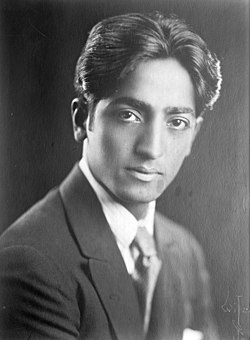Jiddu Krishnamurti Quote
The soil in which the meditative mind can begin is the soil of everyday life, the strife, the pain, and the fleeting joy. It must begin there, and bring order, and from there move endlessly. But if you are concerned only with making order, then that very order will bring about its own limitation, and the mind will be its prisoner. In all this movement you must somehow begin from the other end, from the other shore, and not always be concerned with this shore or how to cross the river. You must take a plunge into the water, not knowing how to swim. And the beauty of meditation is that you never know where you are, where you are going, what the end is.
The soil in which the meditative mind can begin is the soil of everyday life, the strife, the pain, and the fleeting joy. It must begin there, and bring order, and from there move endlessly. But if you are concerned only with making order, then that very order will bring about its own limitation, and the mind will be its prisoner. In all this movement you must somehow begin from the other end, from the other shore, and not always be concerned with this shore or how to cross the river. You must take a plunge into the water, not knowing how to swim. And the beauty of meditation is that you never know where you are, where you are going, what the end is.
Related Quotes
About Jiddu Krishnamurti
According to Krishnamurti an "immense energy and intelligence went through this body," a consciousness he called "the otherness" and which had always been there, but became more clear over time, as did his intellectual capability to express it in words. During his life he tried to share this experience in 'the teachings', but a few days before his death he stated that nobody had understood what his body went through, and after his death, this consciousness would be gone, and no other body would support it "for many hundred years."
Krishnamurti asserted that "truth is a pathless land" and advised against following any doctrine, discipline, teacher, guru, or authority, including himself. He dismissed the need for contrived meditation techniques, instead emphasizing the practice of choiceless awareness as the essence of "true meditation". He also emphasized psychological inquiry and liberation from cultural conditioning.
His supporters — working through non-profit foundations in India, Britain, and the United States — oversee several independent schools based on his views on education, and continue to distribute his thousands of talks, group and individual discussions, and writings in a variety of media formats and languages.
